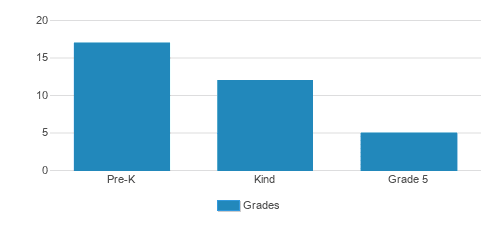Founded in 1967 as a division of Gerber Products Corporation, Childtime Learning Centers has grown to a network of more than 275 locations.
We offer child care, preschool, kindergarten and school-age education services to children, infancy through 12 years.
Our schools are located across the country with a number operated in hospitals, corporations, government facilities and office parks.
Currently, Childtime has nearly 25,000 children enrolled nationwide. The children are cared for and educated by approximately 5,000 dedicated directors and staff.
Our home-like setting and safe, comfortable environment make Childtime the perfect place for children to play, laugh and discover.
Childtime is a subsidiary of Learning Care Group, Inc., the second largest for-profit provider of early childhood care and education services in the United States.
We are the international leader in child education and family solutions, which impact and inspire lifelong learning.
To develop innovative Learning Care solutions which enable us to grow the number of children and families served and to be recognized as the premier child and family education corporation in the world.
Quick Stats (2025)
- School Type: Early Childhood / Day Care
- Grades: Prekindergarten-Kindergarten
- Enrollment: 34 students
- Application Deadline: None / Rolling
- Source: National Center for Education Statistics (NCES)
School Overview
School Type
School Membership(s)School Assoc.
Grades Offered
Grades Prekindergarten-Kindergarten
Student Body
Total Students
34 students
Student Body Type
Co-ed
% Students of Color
33%
State avg.: 51%
Students by Grade

Academics and Faculty
Total Classroom Teachers
1 teacher
Student : Teacher Ratio
34:1
National avg.: 13:1
Tuition and Acceptance Rate
Admission Deadline
None / Rolling
Source: National Center for Education Statistics (NCES)
Frequently Asked Questions
When is the application deadline for Childtime Learning Center?
The application deadline for Childtime Learning Center is rolling (applications are reviewed as they are received year-round).
School Reviews
Endorse Childtime Learning Center. Endorsements should be a few sentences in length. Please include any comments on:
- Quality of academic programs, teachers, and facilities
- Availability of music, art, sports and other extracurricular activities
- Academic or athletic awards
Recent Articles

A Parent's Guide To Understanding High School Teaching Methods
This comprehensive guide helps parents navigate the various teaching methods used in today's high school classrooms. By understanding these approaches, you'll be better equipped to support your teen's learning journey, communicate effectively with teachers, and create a complementary learning environment at home.

February 08, 2025
Social Emotional Learning: Education's Hidden SymphonyA musician's perspective on Social Emotional Learning reveals how this educational framework orchestrates success through five essential emotional competencies.

January 24, 2025
A Roadmap For Starting A Private SchoolUse this roadmap as a set of talking points with your trusted mentors and professionals to start the private school of your dreams. You're not alone. Over the years, hundreds of folks like you have had the same dream. From Quintilian to Maria Montessori to Lucy Madeira Wing, visionary educators have established schools to teach according to their beliefs and methodologies.














